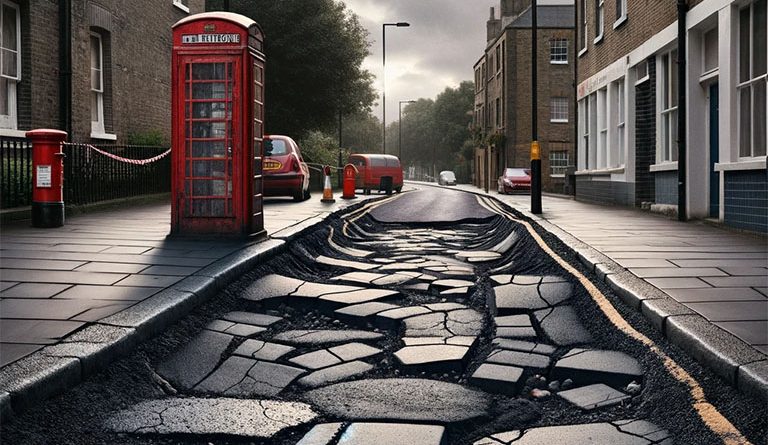Call for UK Utility Firms to Face Penalties for ‘Street Scars’
The term “street scars” refers to the visible damage and disfigurement on pavements and roads caused by utility companies during roadworks. Nicholas Boys Smith, a government adviser and chair of the Office for Place, has highlighted the issue as a “ridiculous and wasteful process,” emphasising the need for higher fines to encourage proper restoration of pavements by these companies.
The Impact of Utility Works on UK Pavements
Utility firms, under the New Roads and Street Works Act 1991, have the right to undertake roadworks, often leaving behind “street scars” that mar the aesthetics and functionality of British high streets. The current legislation leaves local councils relatively powerless, with utility firms having six months to repair the damage and facing minimal fines for non-compliance.
The New Roads and Street Works Act 1991 and subsequent permissions granted by Ofcom for new cable companies have significantly increased the number of entities capable of conducting roadworks, exacerbating the problem. The current system, which allows utility companies extensive leeway and imposes minimal fines, has been criticised for its inadequacy in preserving the quality of public spaces.
Boys Smith suggests a reduction in the repair deadline to three months and a significant increase in fines — £5,000 per month for the first three months and £10,000 per month thereafter. This proposal is based on the premise that despite high operating and financing costs, utility companies remain financially robust, with major English water firms reporting substantial profits.
Implications for UK High Streets and Communities
The presence of “street scars” not only detracts from the visual appeal of urban areas but can also pose risks to pedestrians, particularly those with disabilities. A comprehensive review of pavement parking by the Department for Transport revealed that pavement parking is a widespread issue, with 57 out of 68 local authorities surveyed reporting it as a problem. The review underscored the particular dangers posed to vulnerable pedestrians, including those with visual impairments and mobility aids, and highlighted the financial strain on local authorities due to repairs necessitated by pavement damage.
The call for stricter regulations and higher fines for utility companies is driven by the need to address the visual, functional, and safety issues associated with “street scars.” Implementing such measures could significantly improve the quality of urban environments and the well-being of community members, particularly those most at risk from poorly maintained pavements. The government’s response and potential legislative changes will be crucial in shaping the future of urban infrastructure maintenance and the preservation of public spaces in the UK.
Sources:
- The Guardian article on calls for higher fines for utility firms: www.theguardian.com/society/2024/feb/09/call-uk-utility-firms-higher-fines-street-scars-pavements
- Department for Transport on street works and road works: www.gov.uk/government/collections/street-works-and-road-works
- GOV.UK on pavement parking and options for change: www.gov.uk/government/publications/pavement-parking-options-for-change
